To search the secret of the forest
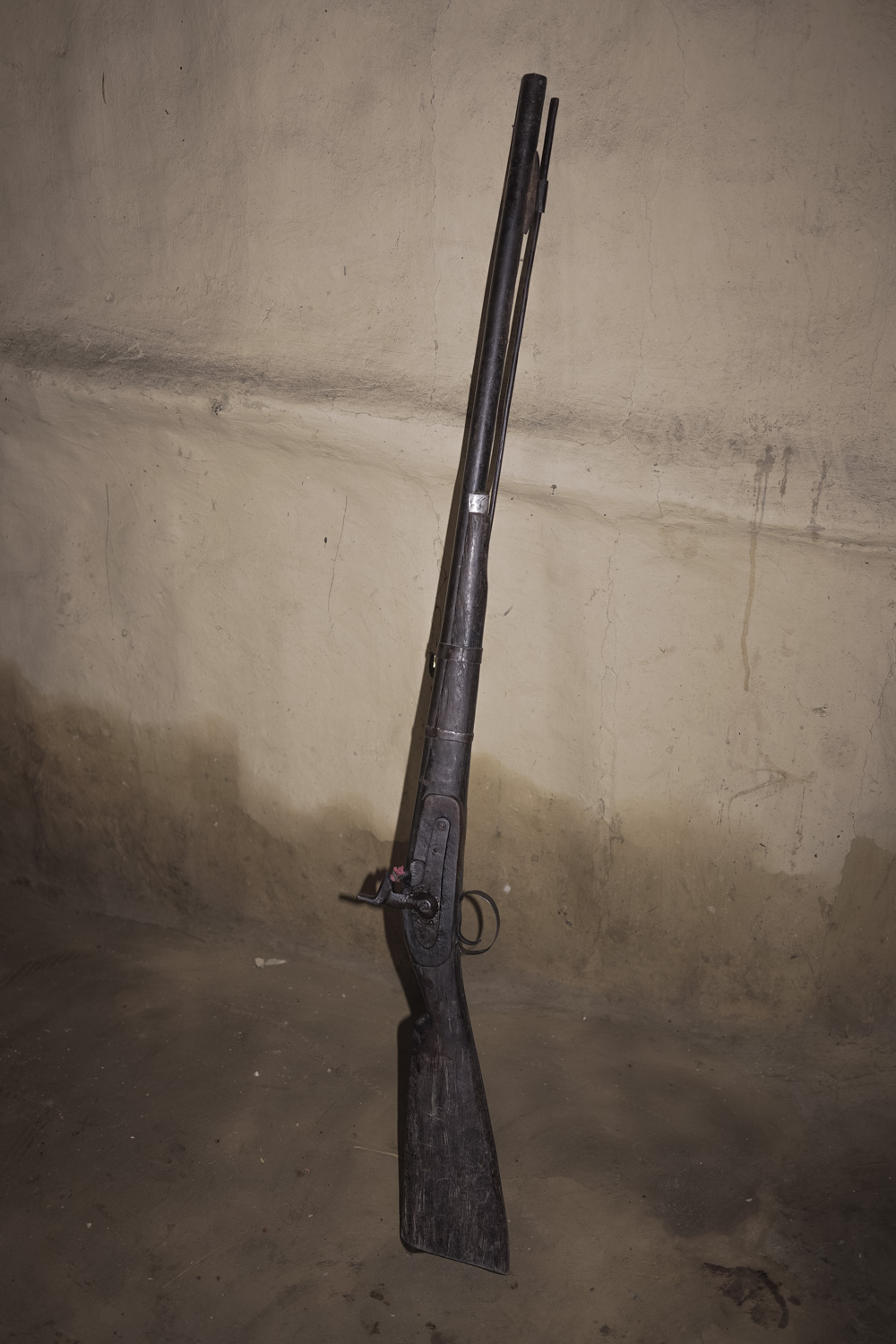
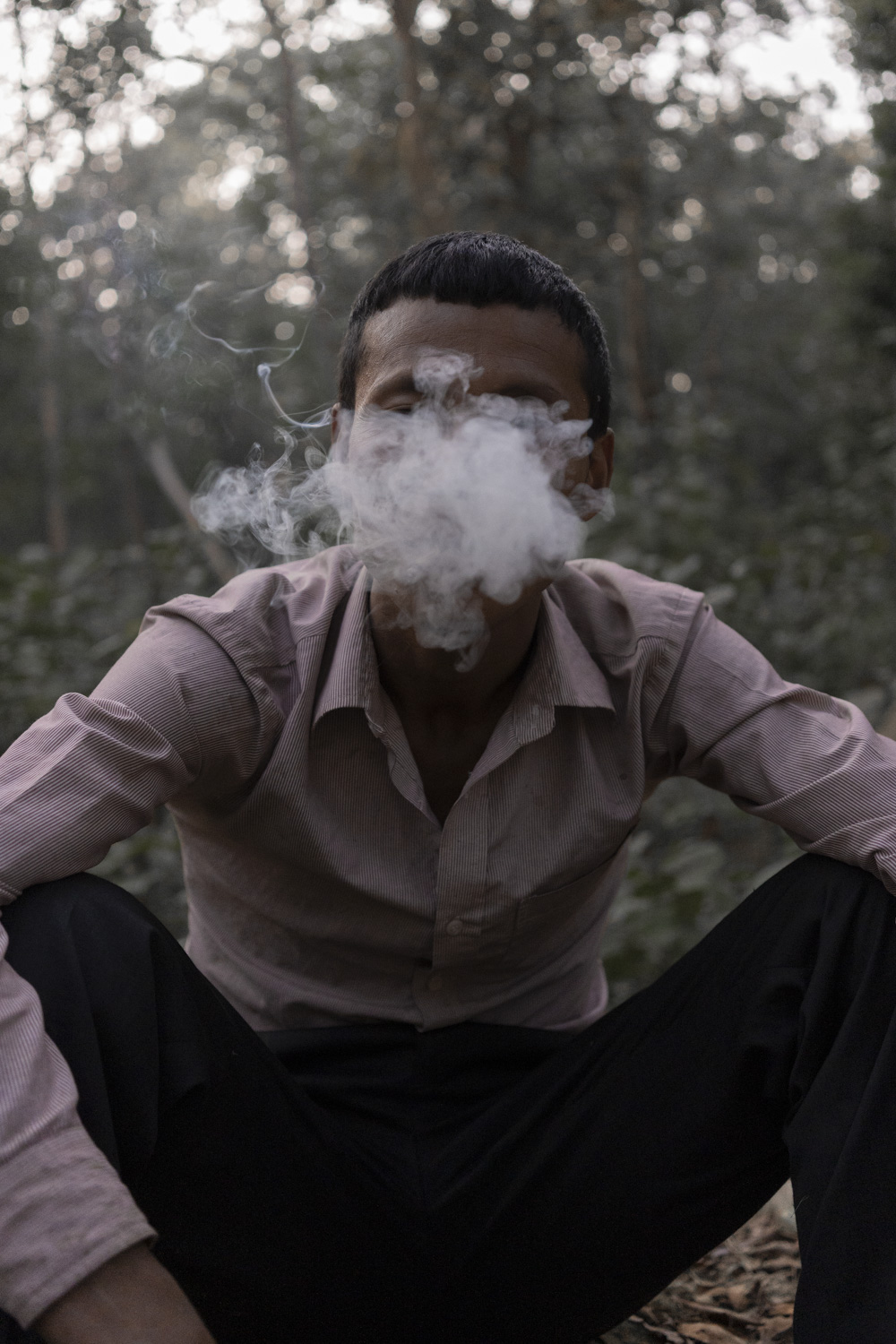
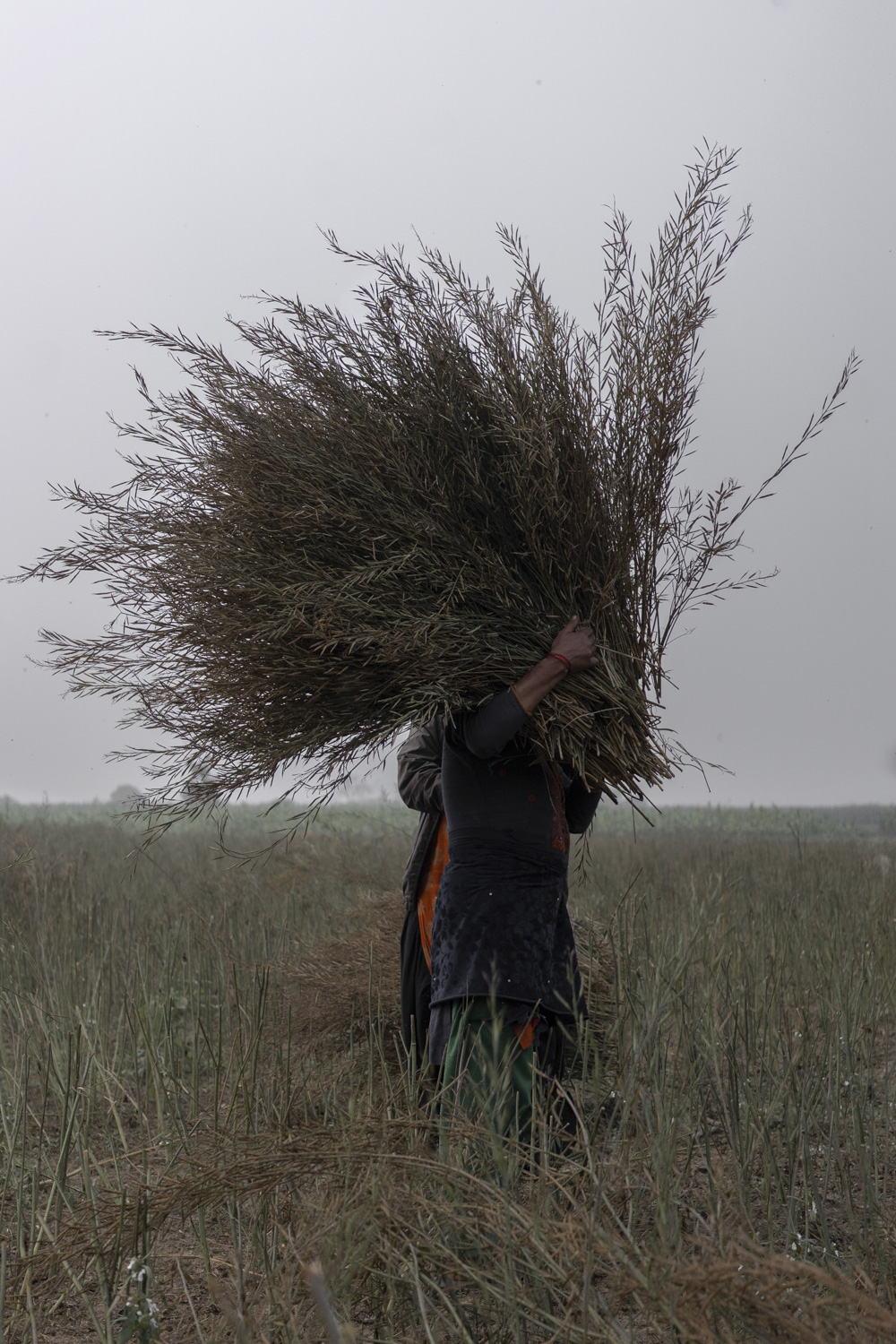
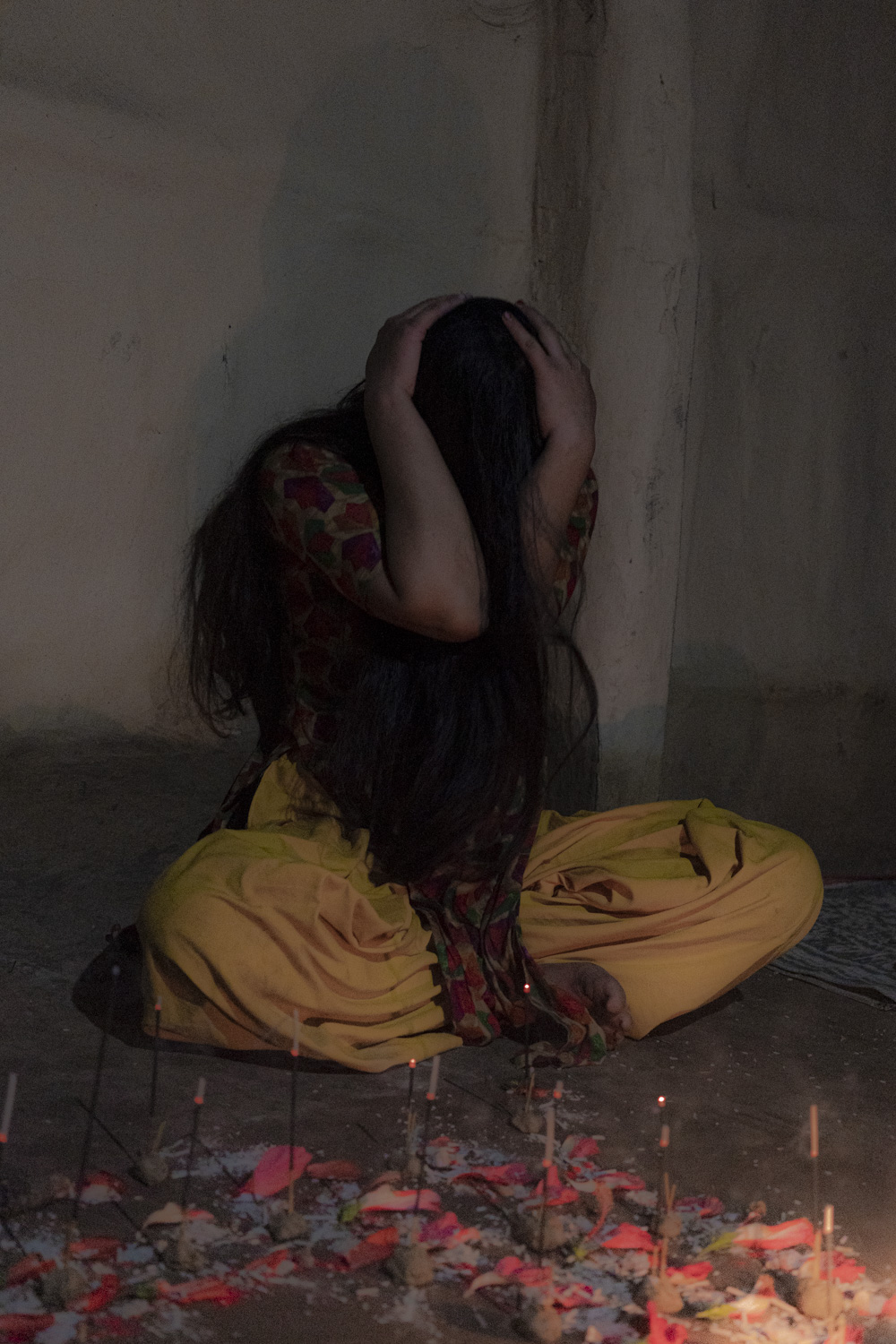
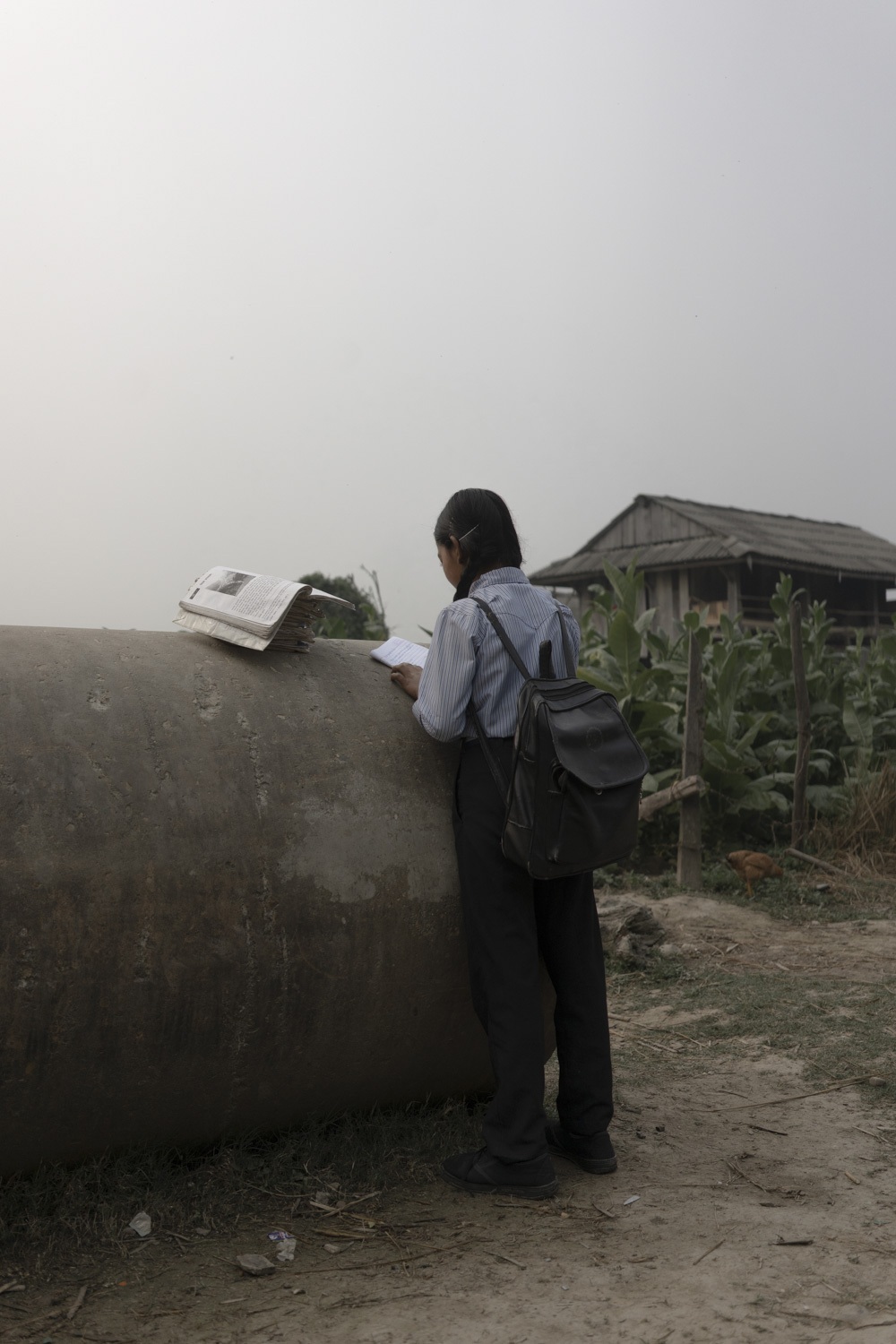
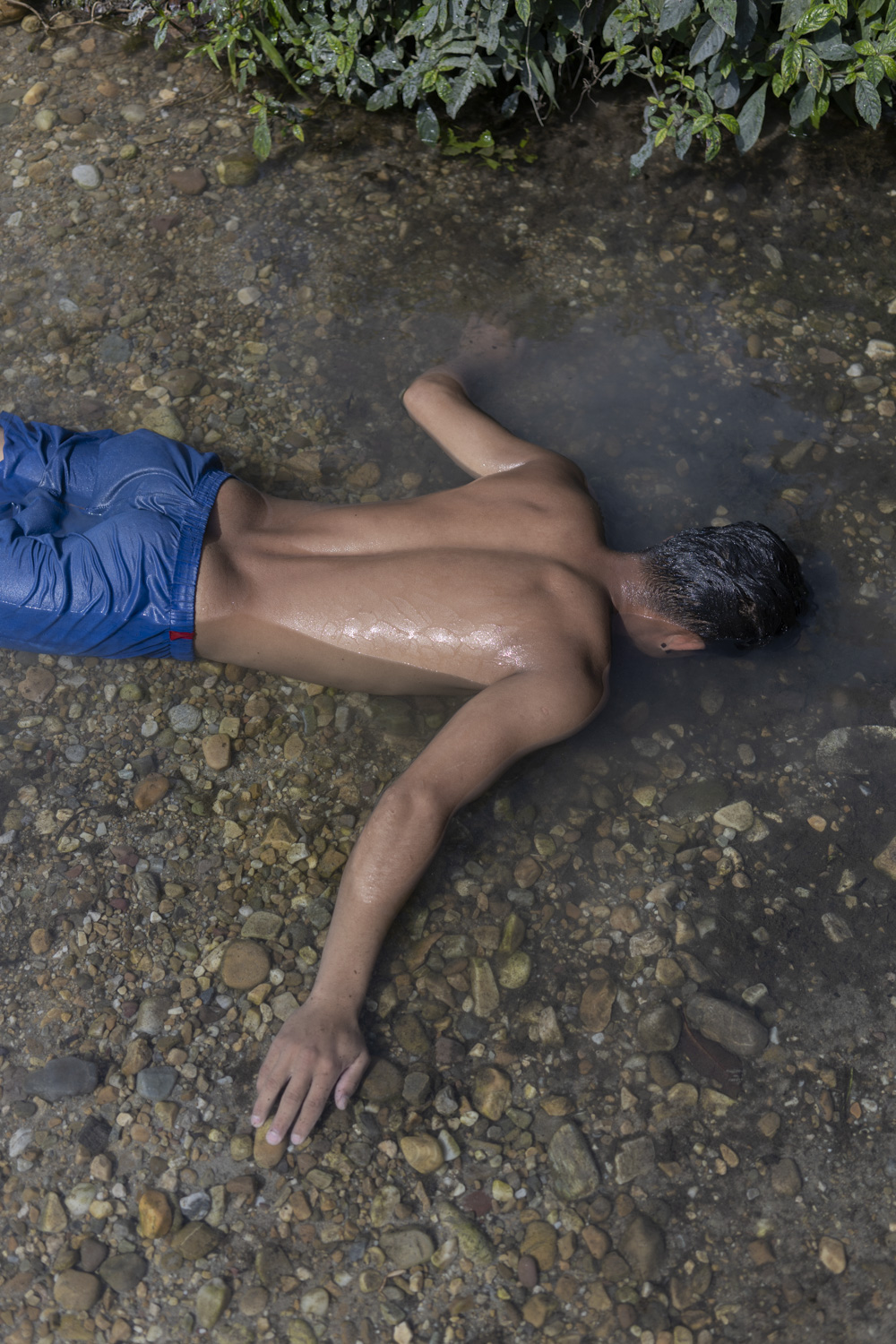
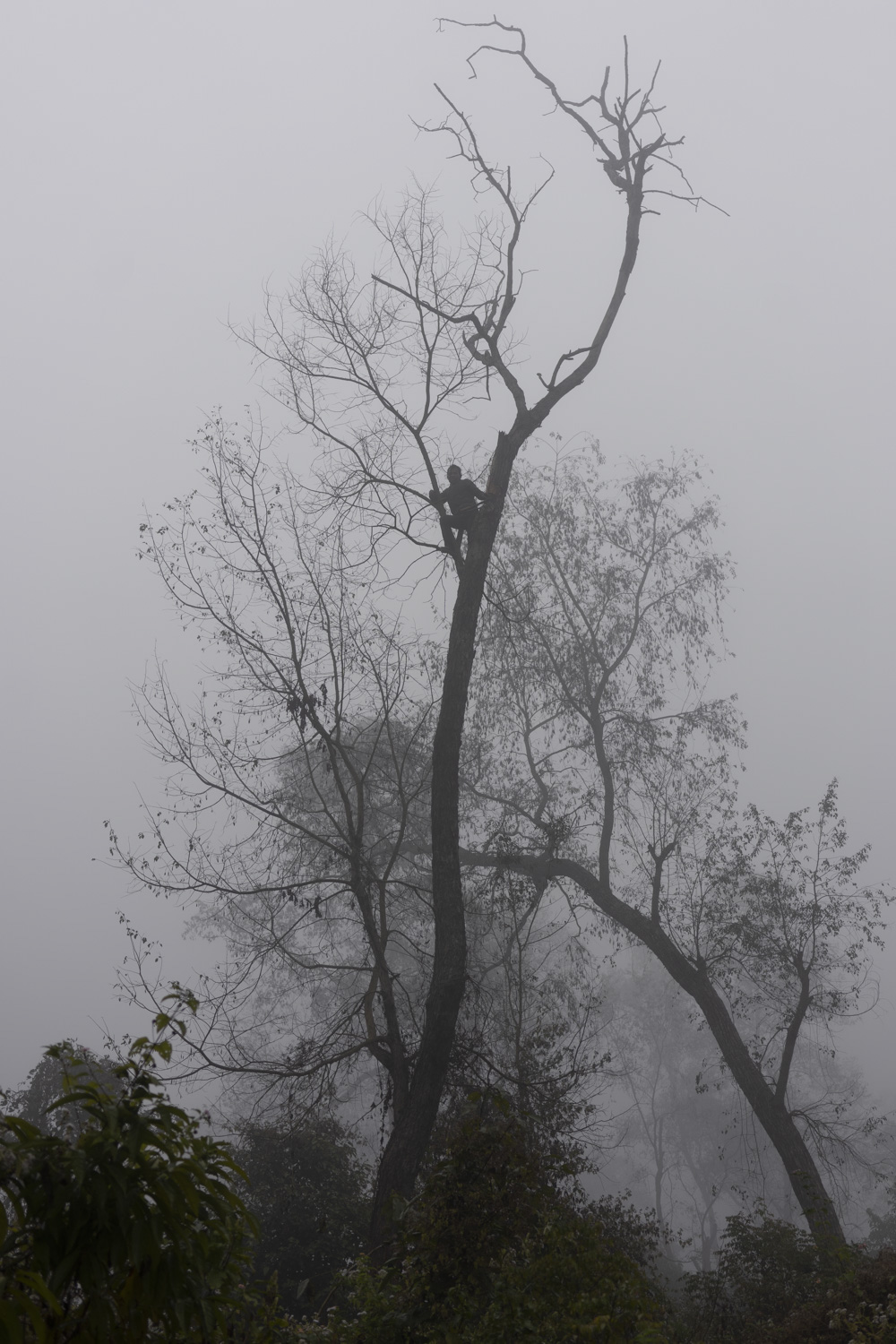
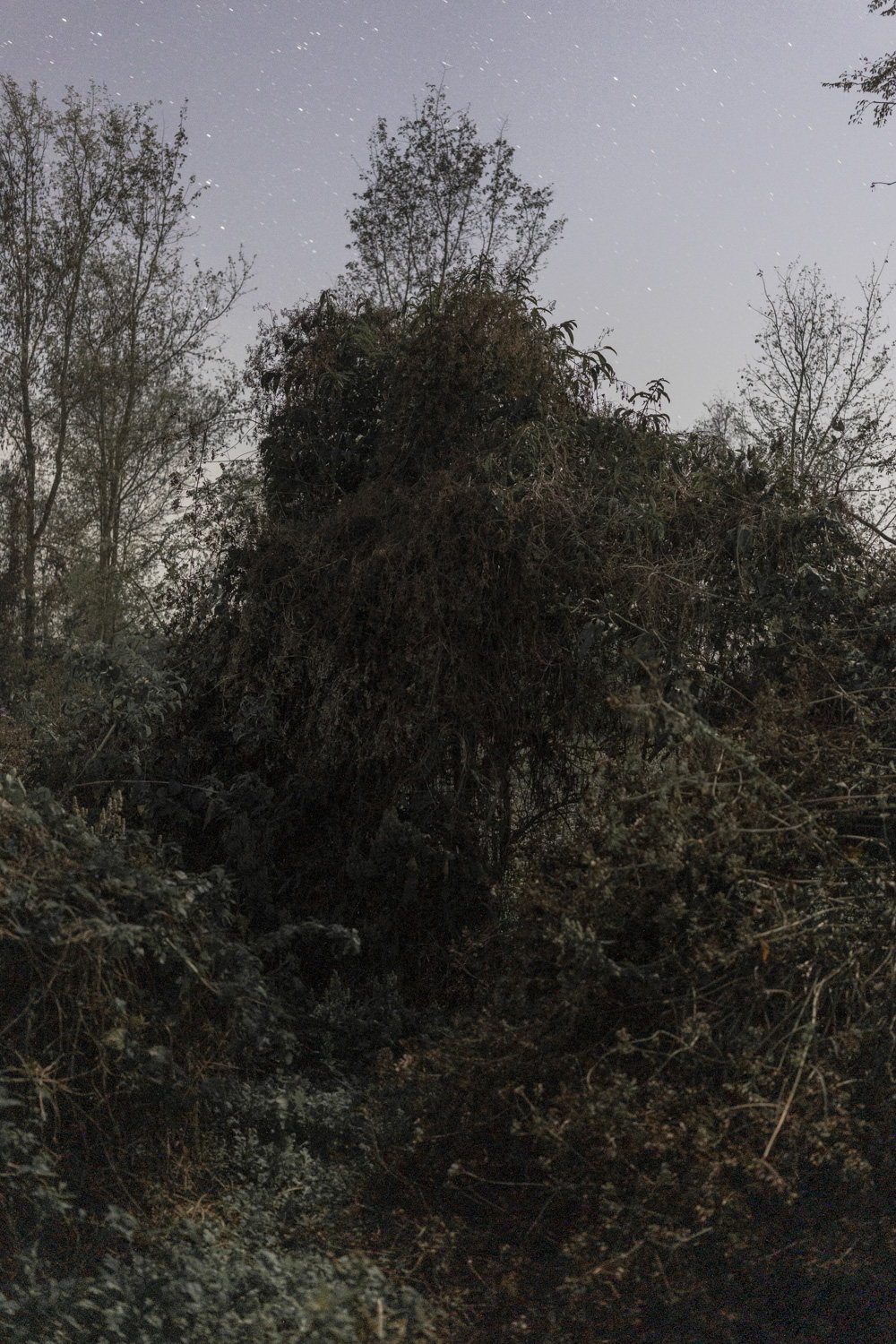
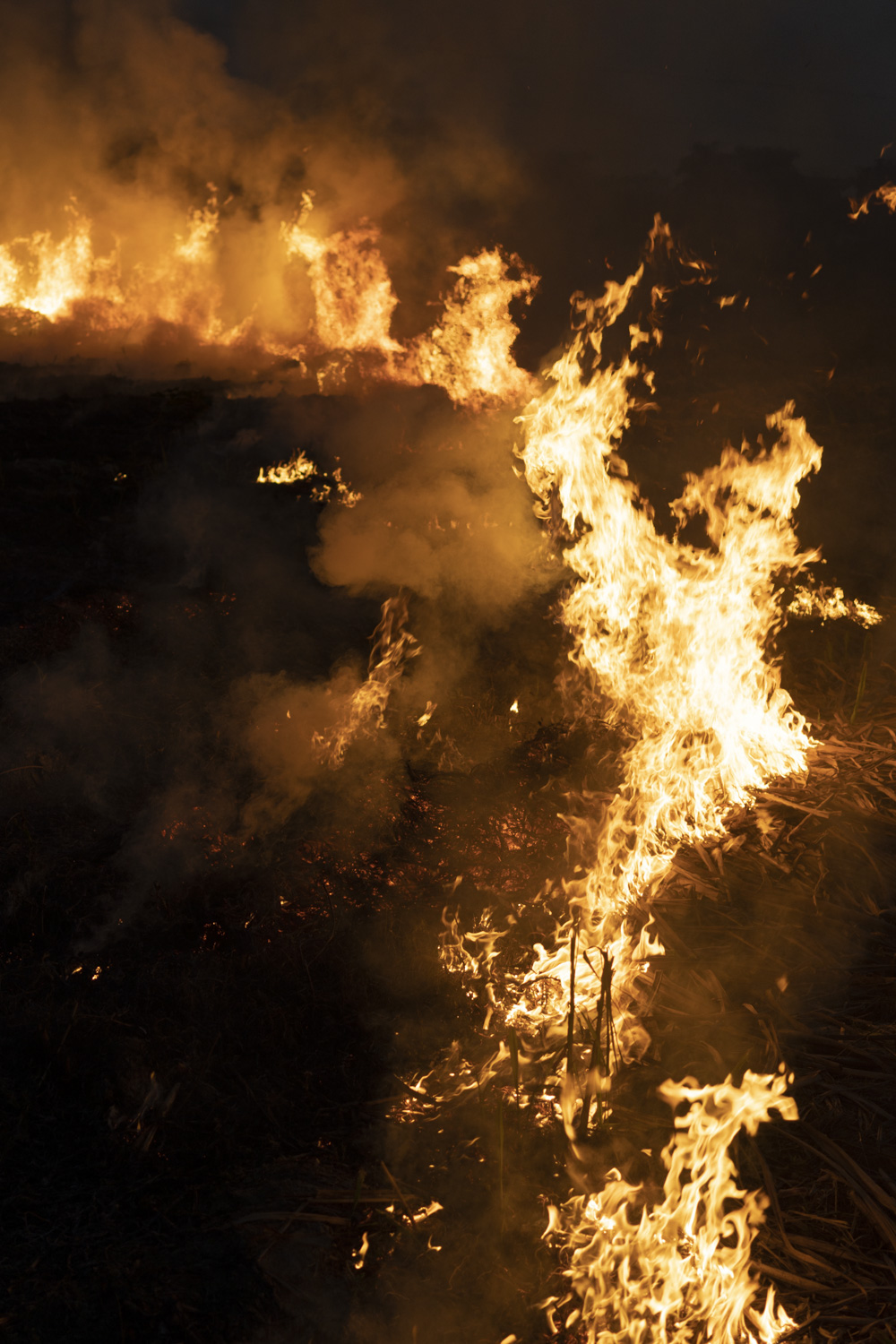
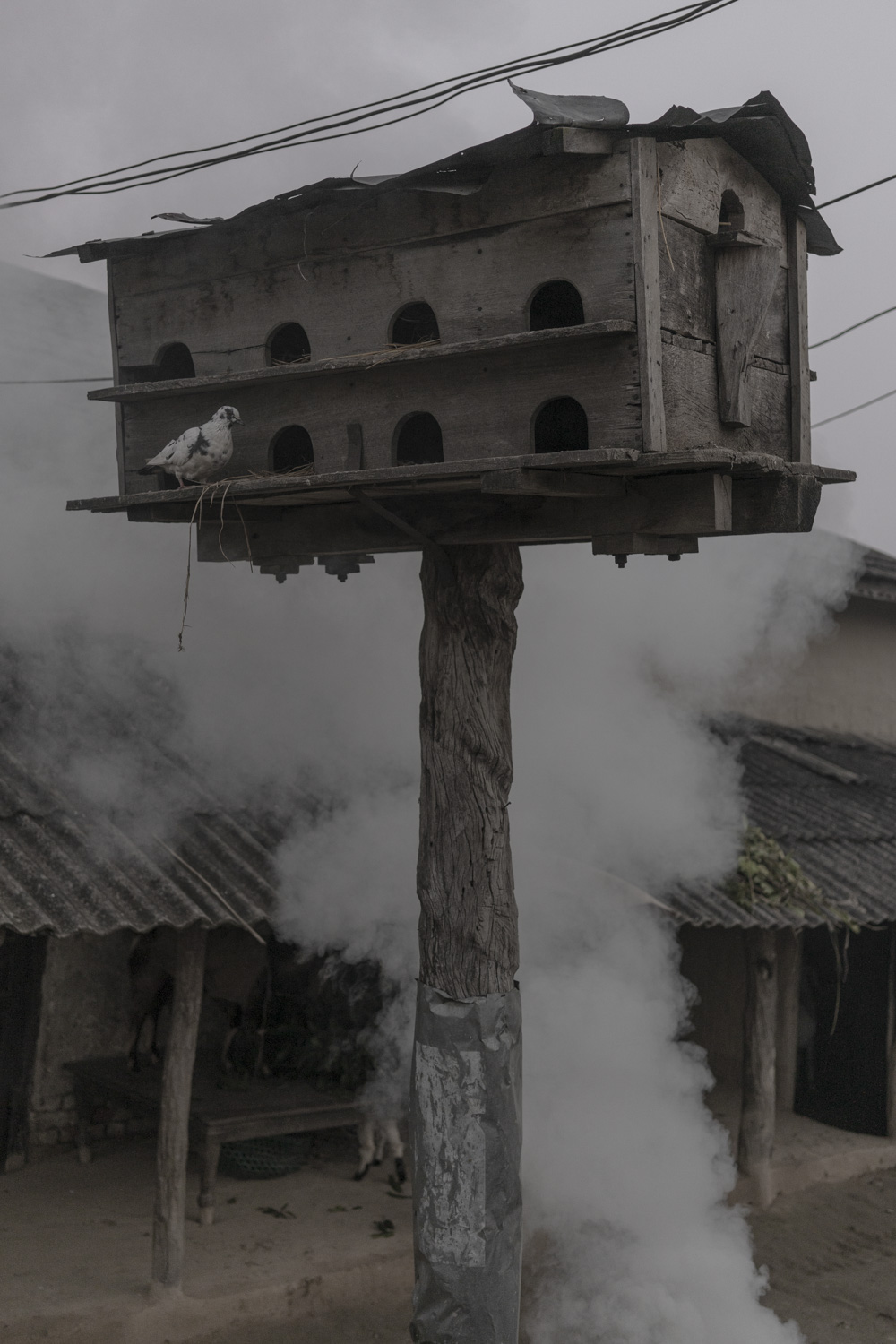
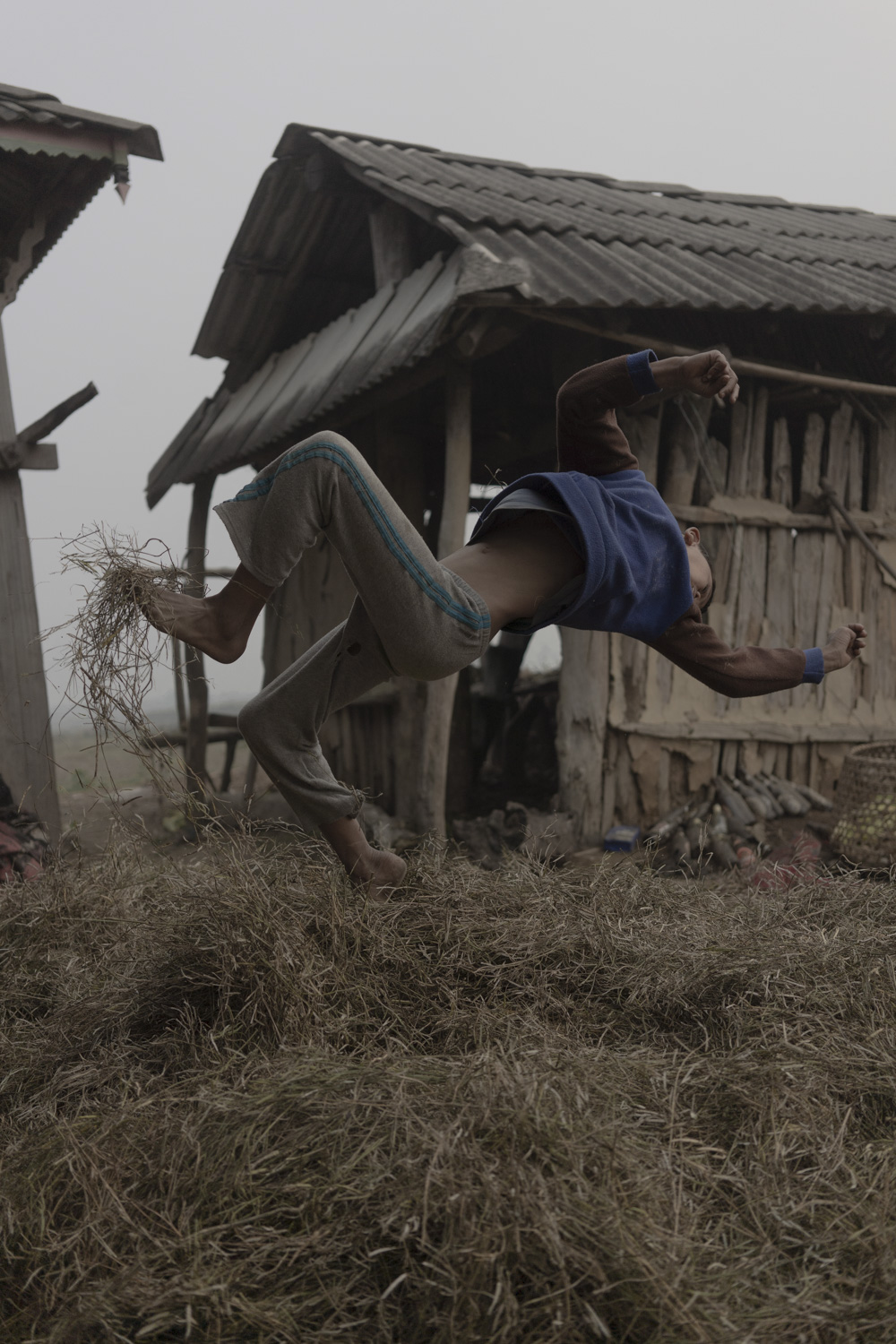
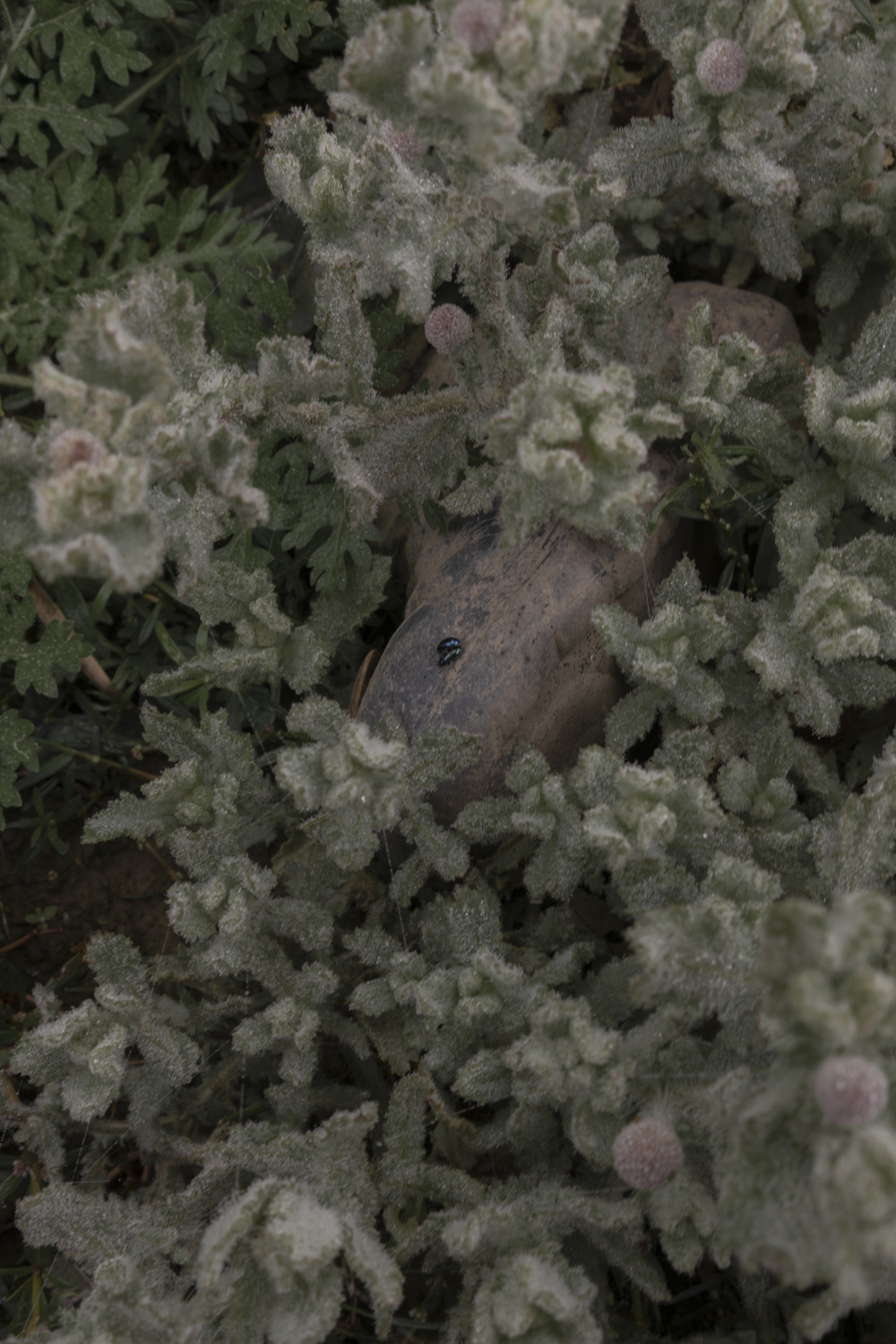
The Nepales community of Tangia Basti has been living for more than 40 years at the center of a sprawling forest, in a complex web of relations between humans and nature. Destined for destruction and displacement due to the proposed construction of an airport, Tangia Basti lived in a state of isolation, the government never provided electricity or running water to the village, but the people have always resisted, building roads and schools, creating a lively existence.
The uncertainty that defines the community triggers a reflection on the necessity to take stock of the necropolitical logics of our times and of a system that capitalizes on all that lives, but also to interrogate the self representation and conventional understanding of being human, which is an old notion based on schemes and mindsets that we have inherited from the past.
This body of work is intended to be an attempt to create the potency necessary to delineate cartographies that can direct the collective consciousness toward a path of becoming posthuman, which is at the heart of a process of redefining one’s sense of attachment and connection to a common and shared world.
At the level of subjectivity it requires the transformation of one’s sensorial and perceptual self understanding in order to make room for the collective nature of what we call “the self”. The self is a movable assemblage within a common life-space, which the subject never masters but merely inhabits, always within a community or an assemblage. For the posthuman theory the subject is a transversal entity, fully immersed and intrinsic to a network of human and non human others.
With To Search the Secret of the Forest, Pietro Lo Casto wants to make the uniqueness of the reality of Tangia Basti the emblematic example of the ever more pressing need to redirect the ideologies of dominant Western societies in order to break down the ideal of anthropocentrism and human exceptionalism and to outline a renewed conception of the "self".